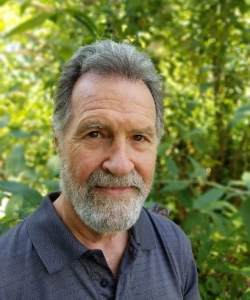
Kent Bradford (Chair)
Distinguished Professor Emeritus and Founding Director of the Seed Biotechnology Center, Department of Plant Sciences, UC Davis
Kent J. Bradford is a Distinguished Professor Emeritus in the Department of Plant Sciences at the University of California, Davis. He earned his B.S. in Biochemistry and M.S. in Horticulture from Michigan State University and his Ph.D. in Plant Physiology from the University of California, Davis in 1981. After a postdoctoral fellowship at the Australian National University, he joined the faculty at UC Davis in 1982. He has received numerous awards and was elected a Fellow of the American Association for the Advancement of Science in 2003. He co-founded the UC Davis Seed Biotechnology Center in 1999 and served as its director until his retirement in 2019. Dr. Bradford’s research interests span diverse areas of seed science, from seed germination and conservation to molecular biology and mathematical modeling. He has published more than 190 articles or book chapters, co-edited three books and co-authored a textbook on seed development, germination, dormancy and storage.

Mel Oliver
Adjunct Professor, Plant Science & Technology, College of Agriculture, Food and Natural Resources, University of Missouri
Melvin J. Oliver is Adjunct Professor of Plant Science & Technology in the University of Missouri’s College of Agriculture, Food and Natural Resources. He earned his M.Sc. in biochemical genetics and Ph.D. in plant biochemistry at the University of Calgary, Alberta. His research is directed toward the identification and functional characterization of genes and cellular processes that are central to (or common to) all forms of dehydration tolerance in plants, in particular desiccation tolerance, and those that are unique to the ideotypes for each identified tolerance mechanism. These studies are also directed toward the goal of understanding the evolutionary link between mechanisms of desiccation tolerance and the mechanisms and genes involved in the response of desiccation-sensitive plants to water deficits (water stress responses in crops). The approach he has developed is best described as a merging of plant genomics and biochemistry with phylogenetics. Recipient of USDA Young and Senior Scientist of the Year Awards and Mid-West Area for Research Leadership and Center Directorship Award, he is also a Fellow of the American Association for the Advancement of Science and a Fellow of the American Society of Plant Biologists.

Lucia Strader
Associate Professor and PI, Department of Biology, Duke University
Lucia C. Strader is Associate Professor of Biology, and PI of the Strader Lab at Duke University. She earned her Ph.D. in Molecular Plant Sciences from Washington State University. Dr. Strader and her team are combining molecular biology, polymer physics theory and ML to identify plant activation domains in a wide range of plant species, from mosses to flowering plants. Their research focuses on a molecular understanding of auxin signaling, auxin homeostasis, and auxin crosstalk with other hormones. Understanding these molecular details can yield insight into strategies used by plants to alter growth in response to various environmental factors.

Henry Chung
Assistant Professor, Department of Entomology, College of Agriculture & Natural Resources, Michigan State University
Henry Chung is Assistant Professor in the Department of Entomology at Michigan State University. He earned his BS (Hons) degree and PhD at The University of Melbourne, Australia. His research seeks to investigate the molecular mechanisms underlying how insects communicate and adapt in our changing world. Specifically, his research focuses on cuticular hydrocarbons (CHCs) and mechanisms underlying the evolution of desiccation resistance across Drosophila species. He is currently also investigating how insect pheromones originate and evolve across species.

Alejandra covarrubias
Professor, Department of Plant Molecular Biology, Universidad Nacional Autónoma de México (UNAM)
Alejandra Alicia Covarrubias-Robles is a Senior Researcher and Group Lead in the Department of Plant Molecular Biology of the Institute of Biotechnology of the National Autonomous University of Mexico (UNAM). A chemical pharmacobiologist, she earned her B.S. in Chemistry, and M.Sc. and Ph.D. in Basic Biomedical Research from UNAM. She received plant biology training under Professor Virginia Walbot’s advising at Stanford University, supported by a Rockefeller Foundation fellowship. Her research focuses on plant responses to water deficit, concentrating on the functional characterization of genes and proteins involved in these responses, as well as the global mechanisms that regulate their expression. In this field, she has studied the structural properties and functions of intrinsically disordered proteins involved in plant stress tolerance. She is also interested in the involvement of the metabolism and distribution of sucrose in terminal drought resistance and its impact on productivity in the common bean. She received the Sor Juana Inés de la Cruz award (2006) from UNAM ,and was the 2018 recipient of the Newton Award and Fellow of the American Association for the Advancement of Science.
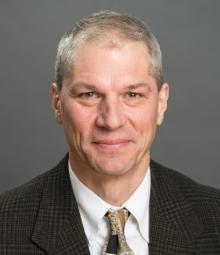
John Bischof
Distinguished McKnight University Professor, Mechanical Engineering Medtronic-Bakken Endowed Chair for Engineering in Medicine, University of Minnesota
Dr. Bischof is a Distinguished McKnight University Professor and a faculty member in the Departments of Mechanical Engineering and Biomedical Engineering. He serves as Director of both the University of Minnesota Institute for Engineering in Medicine and the NSF Engineering Research Center for Advanced Technologies for Preservation of Biological Systems. In addition, Dr. Bischof currently holds the Medtronic-Bakken Endowed Chair for Engineering in Medicine. Dr. Bischof is a renowned researcher in thermal bioengineering, having contributed to applications in therapeutics, regenerative medicine, and diagnostics. He has received international attention for his research focusing on biodistribution and heating properties of gold and iron oxide nanoparticles and other biomaterials and methods for cryopreservation of organisms (such as zebrafish and fruit flies) for aquaculture and biodiversity, and tissues and organs for drug testing and transplantation. He has also founded start-up companies in the diagnostics and cryopreservation areas. Dr. Bischof holds a PhD in mechanical engineering from the University of California Berkeley, a master’s degree in biomedical engineering from University of California San Francisco and University of California Berkeley, and a bachelor’s degree in biomedical engineering from the University of California Berkeley. He completed his postdoctoral work at the Center for Engineering in Medicine at Massachusetts General Hospital, one of the top research hospitals in the world.
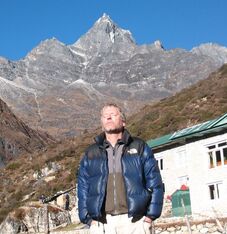
Steven K. Schmidt
Professor, Department of Ecology and Evolutionary Biology, University of Colorado Boulder
Dr. Schmidt is a professor in the Department of Ecology and Evolutionary Biology at the University of Colorado Boulder. He received his PhD from Cornell University and is a microbial ecologist with a passion for soil, microbes, and mountains. His research interests include microbial ecology, biogeochemical cycles, and plant-microbe interactions. Theoretical (modeling) and experimental approaches are used to study the ecology of microorganisms in natural and disturbed systems. Active areas of research include: (1) microbial biogeochemistry of ecosystems in Colorado, Peru and Costa Rica, (2) the role of mycorrhizal fungi in the ecology of wild plants, and (3) biogeography and biodiversity of previously unknown microbial groups. Dr. Schmidt also imagines himself to be an explorer of remote and extreme places and is never happier than when he is far from the maddening crowd (or working in the garden).
Former Scientific Advisory Board Members
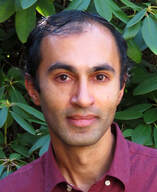
Raghuveer Parthasarathy
Alec and Kay Keith Professor, Department of Physics, The University of Oregon
Raghuveer Parthasarathy is a Professor in the Department of Physics at the University of Oregon and a member of its Institute of Molecular Biology and Materials Science Institute. He earned his B.A. in Physics from the University of California, Berkeley and his Ph.D. in Physics from the University of Chicago. His group explores biophysical topics, especially the structure and dynamics of the bacterial communities of the gut microbiome, using techniques based largely on advanced optical microscopy and computational image analysis. He recently published So Simple a Beginning: How Four Physical Principles Shape Our Living World (Princeton University Press), a general-audience book on how physical principles orchestrate the workings of living things.
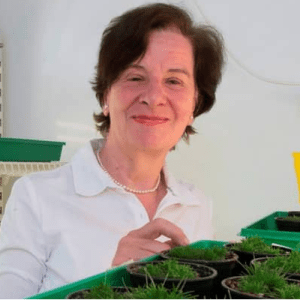
Dorothea Bartels
Professor of Molecular Physiology, University of Bonn
Dorothea Bartels is Full Professor and Head of the Molecular Physiology department in the Institute of Molecular Physiology and Biotechnology of Plants (IMBIO) at the University of Bonn. She earned her Ph.D. in Biology from the University of Hannover, Germany, and did postdoctoral work at the Plant Breeding Institute in Cambridge, Britain on the isolation of cereal storage protein genes. In 1985 Dr. Bartels became a group leader at the Max Planck Institute for Plant Breeding in Cologne, Germany and started her work on desiccation tolerance in higher plants. This was followed by a professorship at the University of Bonn, which was succeeded by a professorship at the Vrije Universiteit, Amsterdam, NL; finally, she returned to a professorship for physiology and biochemistry of plants at the University of Bonn. Her main research interests are molecular stress physiology in higher plants, and particularly anhydrobiosis and how plants adapt to environments with a water deficit. Dr. Bartels has served as Editor in Chief of Planta journal since 2004, and is a member of the Mainz Academy of Sciences and Literature, and the European Molecular Biology Organisation (EMBO). Dr. Bartels studies desiccation-tolerant resurrection plants and compares gene expression with the genetic model plant Arabidopsis thaliana and barley as a crop plant. This research aims to reveal the biochemical function of stress proteins and analyze signal transduction starting with stress perception and leading to expression of genes and metabolic pathways with protective functions.
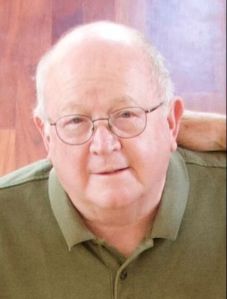
John Crowe
Professor Emeritus, Molecular and Cellular Biology, College of Biological Sciences, UC Davis
John H. Crowe is a Professor Emeritus of Molecular and Cellular Biology in the College of Biological Sciences at the University of California, Davis. He earned his B.S. in Biology and Chemistry from Wake Forest College and his Ph.D. in Biology from University of California, Riverside. With his wife and research partner, Lois, he led pioneering work toward understanding the dehydration and rehydration mechanisms of cryptobiotic organisms, including tardigrades. His contributions included the discovery of trehalose as a protectant for cell membranes, and the use of trehalose and other cryoprotectants for the preservation of human blood components, including platelets, for longer-term storage. In 2018, John and Lois Crowe received the UC Davis Medal, which recognizes individuals of rare accomplishment “to be heralded today and in perpetuity” as special members of the UC Davis community. The following year they were awarded the “Lifetime Achievement Award” for research by California business.

jill farrant
Professor, Department of Molecular and Cell Biology, University of Cape Town
Professor Jill Farrant holds a South African Department of Science and Innovation – National Research Foundation Chair in “Systems Biology Studies on Plant Desiccation Tolerance for Food Security” in the Department of Molecular and Cell Biology, University of Cape Town, South Africa. She utilizes a multidisciplinary approach to understand protection mechanisms associated with vegetative desiccation tolerance, and its regulation, with the ultimate aim of producing drought tolerant crops for food security. She has received considerable recognition for her research, having achieved 11 national and international awards, and her work has been the subject of several international documentaries, which can be found on her website. Farrant has 152 peer-reviewed publications, 16 book chapters, over 200 conference proceedings, and has graduated 36 MSc students and 30 PhD students during the 29 years she has been an academic. She is a Fellow of the AAS, RSSAf, TWAS and UCT, and a Member of ASSAf and OWSD.


